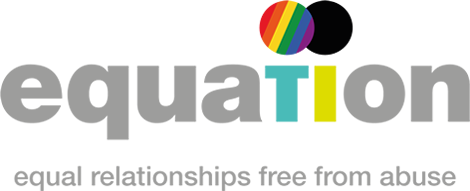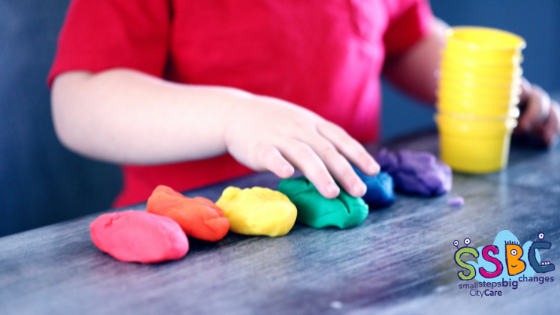Over the last year, funded by Small Steps Big Changes (SSBC), Equation has been researching into what can be improved to help prevent domestic abuse at the early years level.
Consulting with over 300 early years practitioners in Nottinghamshire, Equation have spoken to foundation units in schools, childcare providers and childminders. Questions were asked to assess what was already being delivered, access and takeup of training and resource or support needs as well as exploring confidence levels when dealing with possible domestic abuse.
Key findings were:
- 66% of respondents have never received specific domestic abuse awareness training
- 45% of respondents rated their current knowledge of domestic abuse and its impact on families and young people as 6 or lower (10 being the highest). Only one person rated themselves a 10
- 50% of respondents rated their confidence in dealing with families where they suspect domestic abuse is happening as 6 or lower. Only one person rated themselves a 10
- When asked ‘How often do you deal with safeguarding issues related to domestic abuse?’:10% said ‘weekly’, 17% said ‘monthly’, 27% said ‘annually’, 28% said ‘never ’and 18% said ‘not sure’
- 70% of respondents were not aware of any early years resources that teach children about healthy relationships
- When asked ‘What do you feel your setting needs in terms of domestic abuse and healthy relationships education?’ answers were
- Resources for children: 78%
- Resources for parents: 72%
- Staff training-40 responses: 67%
- Information and support services information to display: 67%
- Posters, leaflets, support services information to hand out: 60%
- Nothing required: 1.7%
Following the consultation, a range of possible interventions have been put forward and discussed with focus groups, led and delivered by one of our former freelancers Mary Prest and her company Bo Vanhegan Ltd as well as being supported by Karen Shead, (0-19 Safeguarding Co-ordinator, Nottingham City Safeguarding Children Partnership).
The recommendations were:
- Face to face training, supported by an integrated resource pack and guide for early years practitioners, would be the most useful.
- Workshops for survivors and their children. These should be provided, ideally, by external specialist staff, in a range of locations (centrally for discretion, and locally for peer-to-peer support and for ease of travel, dependent on survivor preference). Early years settings should be able to refer survivors to these sessions.
Equation is now working with commissioners to source funding to implement the recommendations in the report.
Help for Children
Our Work with Young People
Find out about our award-winning domestic abuse prevention and healthy relationships projects for children and young people.
Resources
Order resources for adult survivors and their children.
Related Posts
Children & Young People Targeted Project Support Worker
Children & Young People Targeted Project Support WorkerLocation: Hybrid working between home, our Nottingham office and schools across NottinghamshireSalary: £25,766pa FTE, £15,668.51 actual salary for part time hours Hours: Fixed term until 31 December 2025,...
Children & Young People (CYP) Project Support Worker
Children & Young People (CYP) Project Support Worker Location: Hybrid working between home, our Nottingham office and schools across Nottingham and Nottinghamshire Salary: £24,623 pa FTE. £14,973.45 actual salary for pro-rata hours Hours: Part-time 22.5 hours...
How you can help
No matter how much time, money or resources you can afford to give, your support will make a difference.
£10
Give monthly
Could pay for four children
to take part in our early intervention projects
£30
Give once
Could pay for one primary school child to receive our healthy relationship education program
Support equation
Check out the other ways you can support us


